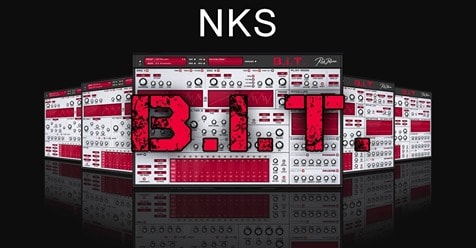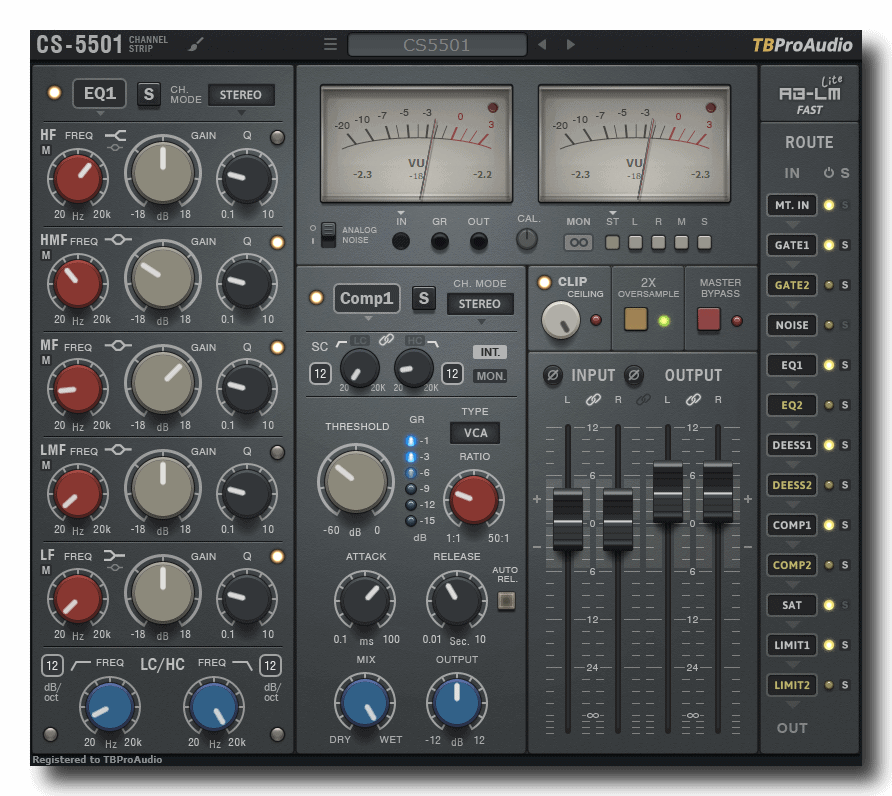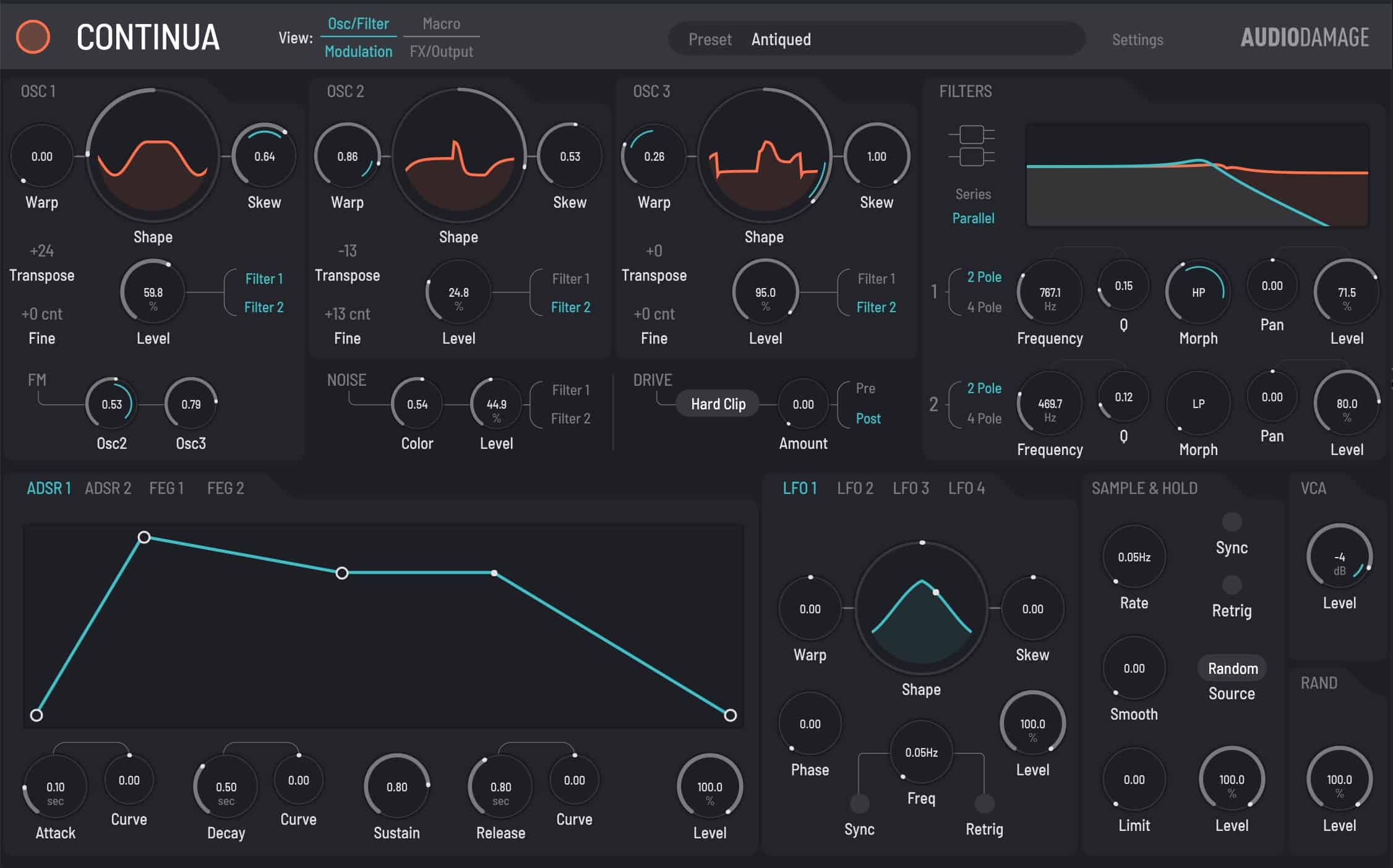Combining the best of analog modeling with hybrid synthesis, which we can see with the other Rob Papen synthesizers, B.I.T. (Back In Time) focuses on Analogue Modelled Synthesis.
The idea behind B.I.T. is that the classic analog type of synthesis has its own charm and simply has not yet been covered by the Rob Papen brand. So, no spectrum waveforms, or samples inside B.I.T. nope, it is pure ‘Analogue Modelled’ synthesis.
Although B.I.T. has no patch cables, it is modular by all means! The Modulation Matrix is used for the patching, however, also included in the smart ‘advanced’ panel below the Oscillators. With these advanced features (accessed by switching the ADV switch), you can quickly make several connections such as LFO and Envelope to the Oscillator parameters inside of B.I.T.
B.I.T. Features
- 16voice virtual analog synthesizer
- Over 950 top-quality presets
- 2 Oscillators with a dedicated advance panel offering an LFO and Envelope for modulating different parts of the Oscillator
- Classic waveforms in each oscillator included ‘Tuned Noise’
- 2nd Oscillator has Sub-Oscillator with Sinus, Square and Saw waveform
- Oscillator-2 can be modulated by Oscillator-1 in FM, PM or RING mode.
- Oscillator-2 can Sync to Oscillator-1
- Oscillators have ‘wave feedback’ feature
- Dedicated Noise Oscillator with White and Pink Noise
- 2 analog modeled Filters with 11 different character Filter types and modes
- Filter Routing options: serial, split-osc, split-noise
- Dedicated Filter Envelope with Attack, Decay, Sustain, Fade and Release.
- Filter Envelopes with Tempo Bases Sync option and inverted mode
- AMP with velocity control and Attack, Decay, Sustain and Release
- ARP with 16 steps and many different modes and detailed features and options
- PLAY MODE with Poly, Mono and Legato mode included many different Unison modes
- Chorus FX
- Flanger or Phaser FX
- Delay and HQ Reverb (serial)
- Bank manager
- 100%, 150% and 200% size options










